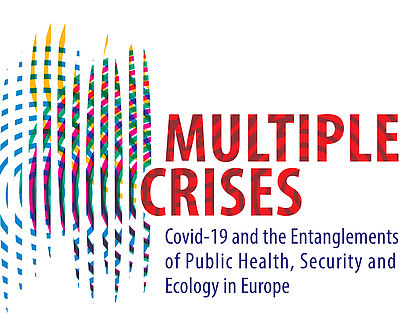Call for papers : “Rethinking Governance in Times of Multiple Crises: The Cases of Climate Change and Pandemics”
11 juin
Call for Contributions
PhD Workshop: “Rethinking Governance in Times of Multiple Crises:
The Cases of Climate Change and Pandemics”
October 16 - 18, 2023
Villa Vigoni, Italy
We live in times of multiple crises. Governance strategies for crisis response, especially in terms of
prevention and preparedness, are confronted with cascading and intertwined processes resulting in
extensive delimitations and dynamic social, political and economic interactions. For the cases of
climate change and the Covid-19 pandemic in particular, the governance of multiple crises has to cope
with high degrees of urgency, uncertainty and complexity. This workshop aims to critically rethink
governance in times of multiple crises by assessing the crisis responses of political decision-makers,
scientific experts and society in the context of climate change and pandemics. It invites theoretical and
empirical research contributions that focus on one of the two crisis phenomena and relate the
following topics:
1. Political crisis management: between techno fixes and social participation
Of particular interest are PhD projects that concentrate on adaptation practices, coping strategies, and
political reaction patterns at the local, national, European and global levels. As preparedness and
security technologies are important issues when dealing with crises, contributions that critically assess
the role of techno-fixes as a solutionist agenda for crisis governance are just as welcome as research
perspectives addressing the question of how social conflicts are in danger of being concealed by
“digital black box” crisis responses. This also gives rise to the question of how political actors react to
crises, e.g. with regard to specific processes of securitization or global modes of crisis governance that
tend to oscillate between cooperation and national interests. Also, the role of new paradigms of crisis
governance, like the prominent but vague concept of resilience, could be reflected on.
2. Crisis reactions of scientists and experts: science-policy-nexus and the role of knowledge
The role of knowledge is a key issue, as it is equally important in the context of crises such as the
Covid-19 pandemic and climate change. The observation that knowledge, on the one hand, acts as a
central resource – especially for political decisions – but, on the other hand, is becoming increasingly
fragile and ambiguous, represents an important feature of public and political debates. In the context
of epistemic crises, there is a discussion to be had on how the sometimes-lamented lack of
transparency in the production, communication and use of scientific knowledge for political decisions
can be remedied. In addition, the relationship between the natural and social sciences and their
function in public and political debates in terms of relevant crisis knowledge could be considered.
3. The social dimension of crises: risk perception, mediatization and imaginaries
The workshop also welcomes contributions that shed light on the social dimensions of crises with
regard to the governance of climate change and pandemics. These could touch on patterns of risk
perception and how they lead to specific individual and collective coping strategies or certain forms of
social movements. Furthermore, the role of (social) media in times of crisis, and how their influence
leads either to processes of cohesion and solidarity or to polarization, disintegration and injustice, can
be addressed. Also, contributions that deal with (social) imaginaries of both crises and crisis responses
and their entanglements with visions of different kinds of future(s) are of great interest and very
welcome.
Workshop Goals and Application Process
The PhD Workshop is organized within the framework of the research project “Multiple Crises. Covid-
19 and the Entanglements of Public Health, Security and Ecology in Europe”, funded by the German
Ministry for Education and Research (BMBF) in cooperation with Sciences Po, Paris. It will bring
together scholars from different academic traditions in an interdisciplinary and interactive work
environment. During a three-day event, the above-highlighted three research axes will structure the
exchange on theoretical, conceptual and methodological approaches to researching multiple crises. In
the beautiful environment of the Villa Vigoni at the Lago di Como, this coming together will be
enriched by a trilateral roundtable and other input sessions in collaboration with Asst. Prof. Carola
Klöck (Sciences Po, Paris), Prof. Elena Esposito (University of Bielefeld & University of Bologna), Jun.
Prof. Ulrike Zeigermann (University of Würzburg) and Prof. Frédéric Keck (Research Director at CNRS-
Collège de France-EHESS). Other goals of the workshop are to provide a space for networking and for
developing collaborative publication projects.
The workshop is planned as a live event to be held at the Villa Vigoni and will be conducted in English.
There are no application fees and all costs for accommodation and travel will be covered in full. This
call is an invitation to 12 PhD students engaged in social science, political science, geography,
philosophy, history, or law whose work addresses questions of crisis perception, governance and crisis
response. As it is a trilateral workshop, a particular interest lies in contributions from German, French
and Italian research contexts. The applications should include (A) a letter of motivation (max. 1 page)
including self-assignment to one of the three central questions; (B) a brief synopsis of and progress
report on the PhD project (max. 1 page) and (C) a CV, including a publication list, if applicable (max. 2
pages).
The applications must be submitted as a single pdf sent by June 11th, 2023 to: gabriel.bartl@cmb.hu-
berlin.de & judith.hardt@cmb.hu-berlin.de. Selected participants will be notified by mid-June and
provided with various materials so as to be well prepared for the workshop.
Organizers
Dr. Gabriel Bartl & Dr. Judith Nora Hardt (Centre Marc Bloch
Contact:
Gabriel Bartl
gabriel.bartl ( at ) cmb.hu-berlin.de
